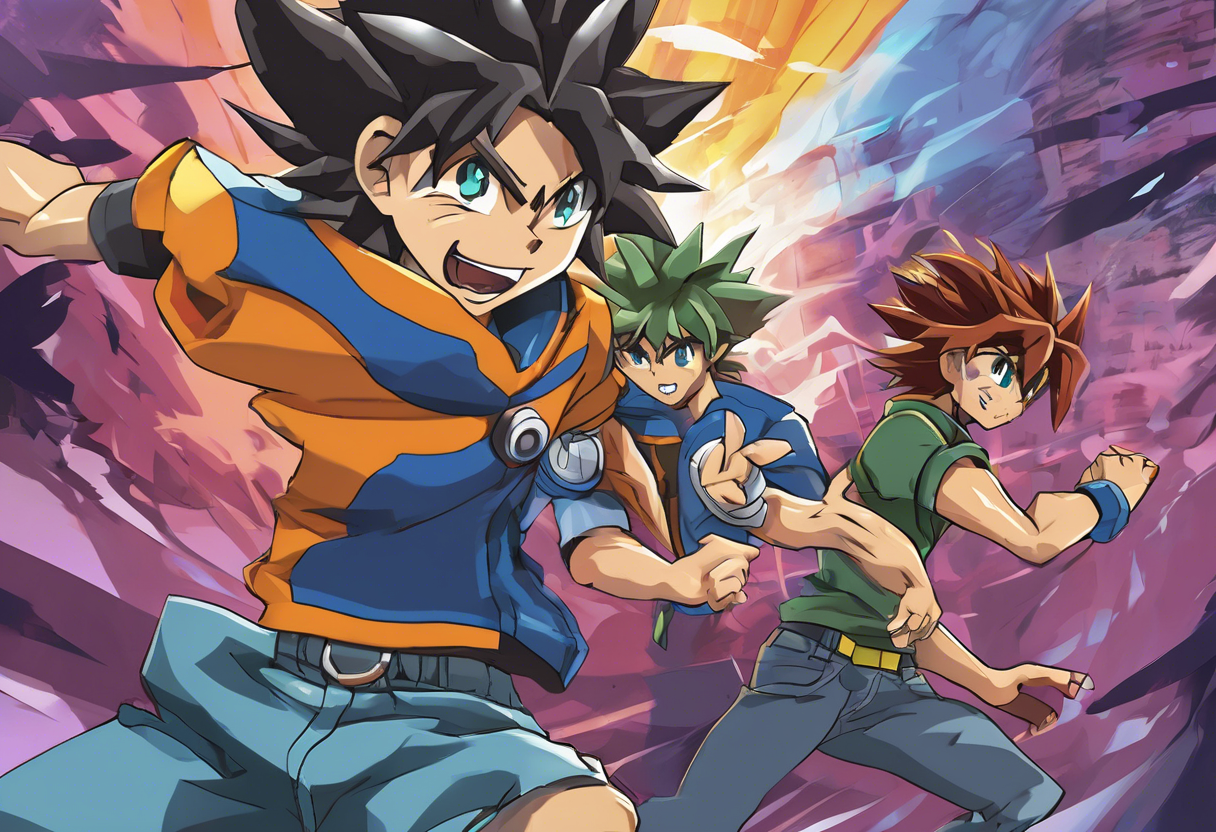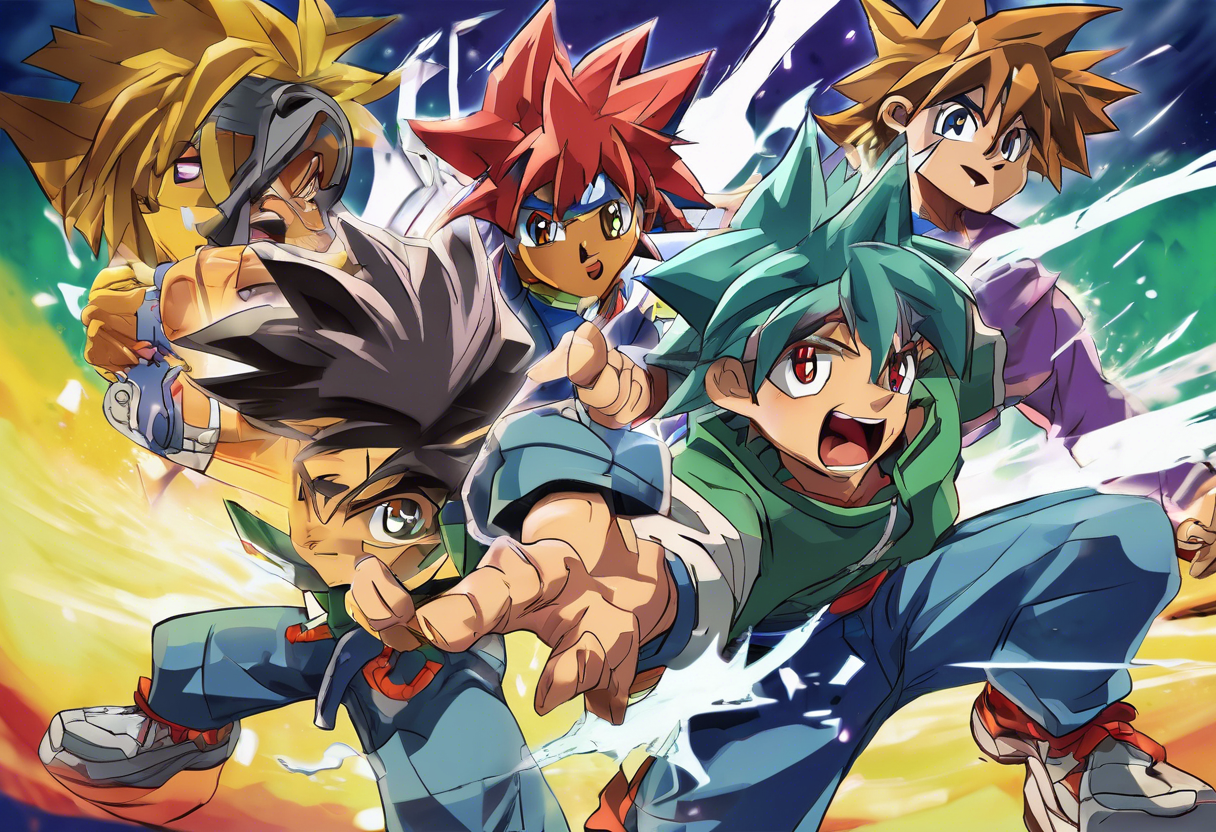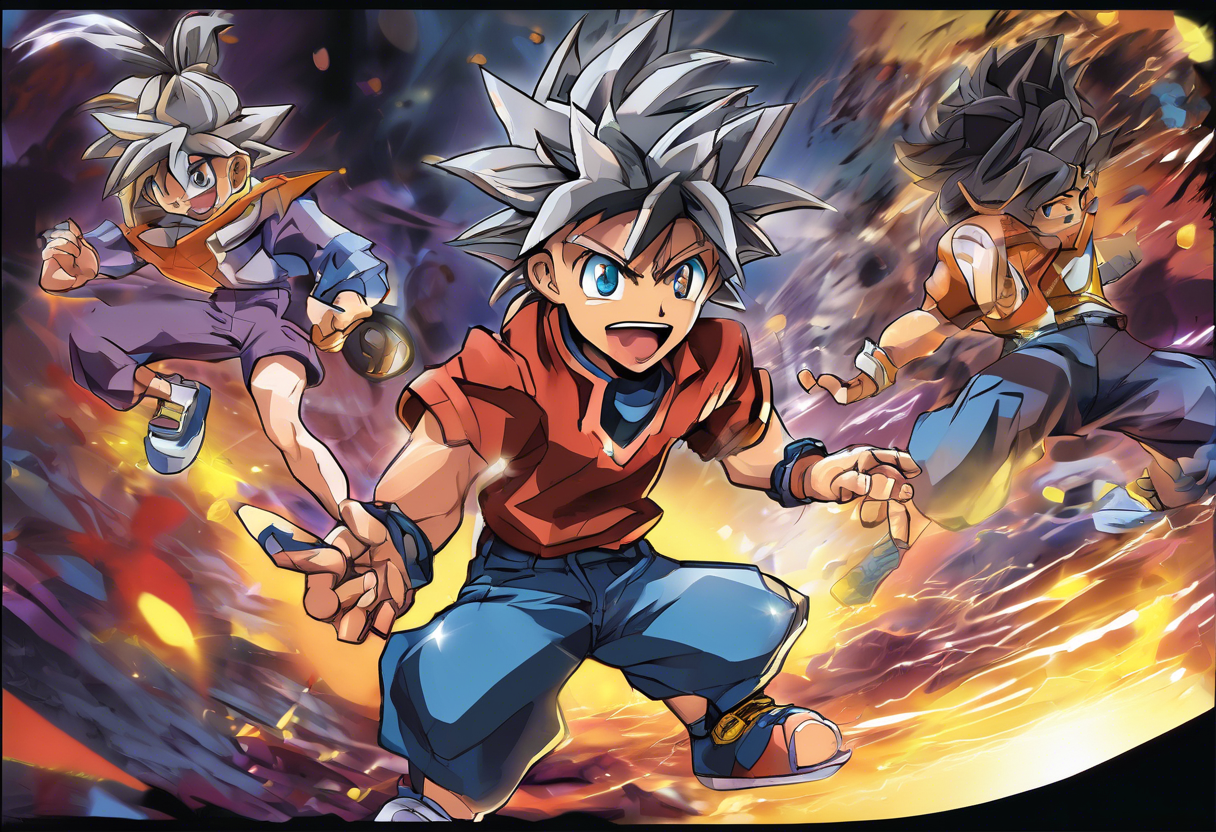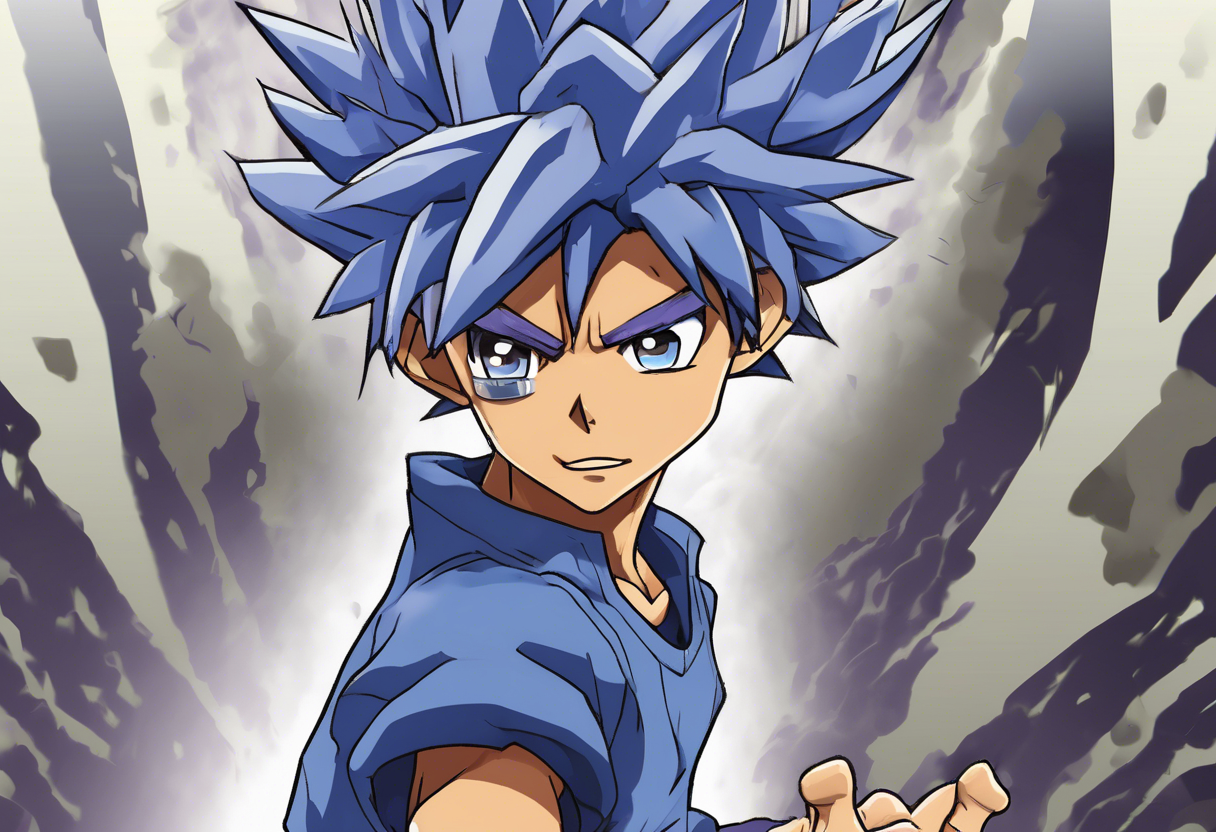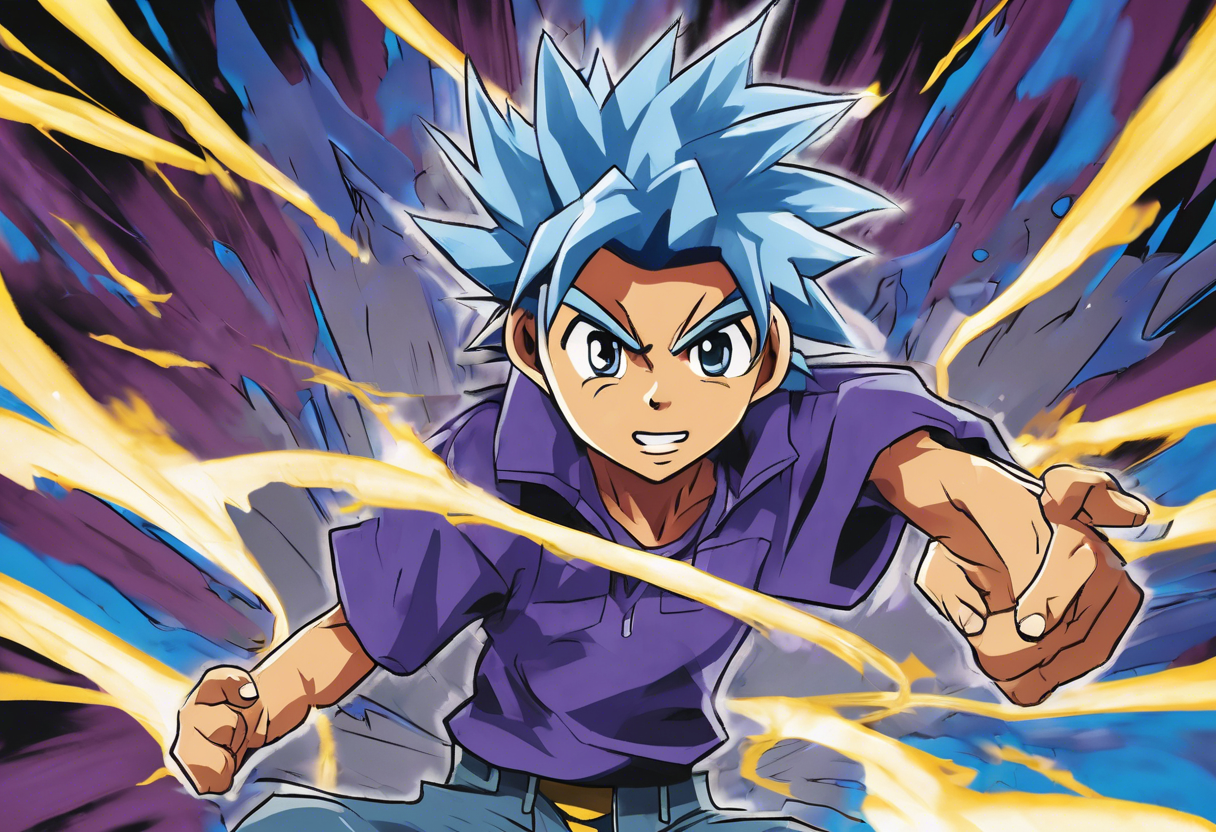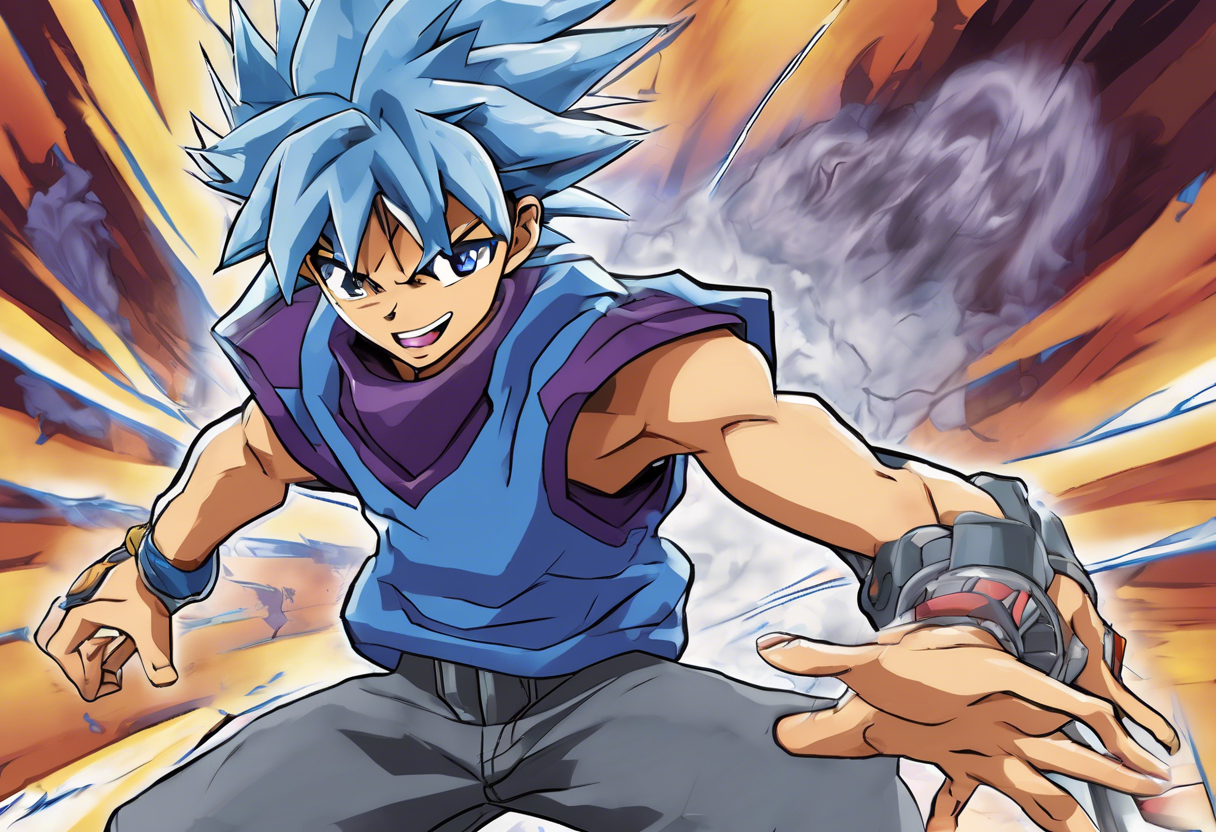Contents
Introduction
"Beyblade" (2001), also known as "Bakuten Shoot Beyblade" in Japan, is a Japanese anime television series based on the manga of the same name by Takao Aoki. The series, which premiered on January 8, 2001, on TV Tokyo, follows the adventures of a group of young Beybladers as they compete in high-stakes tournaments and battles[2][4].
Episode 44, titled "Losing Kai," is a pivotal episode in the series, marking a significant shift in the narrative and character dynamics. Directed by Toshifumi Kawase and produced by Madhouse, the episode was part of the original 51-episode run that aired from January 2001 to December 2001[4].
The production of "Beyblade" involved a collaboration between several key creative figures, including director Toshifumi Kawase, writer Yoshifumi Fukushima, and producer Masao Maruyama. The series is notable for its unique blend of adventure, comedy, and sports elements, centered around the theme of spinning tops known as Beyblades[4].
Plot Summary
In "Losing Kai," the narrative takes a dramatic turn as it delves into the complexities of Kai Hiwatari’s character and his relationship with the other members of the Bladebreakers. The episode begins with Kai sneaking into an abbey where he discovers a secret laboratory run by Biovolt, a sinister organization led by his grandfather, Voltaire Hiwatari.
Kai’s visit to the laboratory is driven by his curiosity and a sense of nostalgia, as he recalls his childhood memories of using his original bit beast, Dranzer. Here, he encounters Boris, a key figure in Biovolt, who reveals to Kai the existence of Black Dranzer, an evil version of his original bit beast. The temptation of this dark power is too great for Kai to resist, and he decides to take Black Dranzer, thereby aligning himself with the Neoborg, also known as the Demolition Boys[5].
As Kai embraces the power of Black Dranzer, he undergoes a significant transformation, both physically and emotionally. He becomes increasingly isolated from his friends and teammates, Tyson Granger, Max Tate, and Ray Kon. This new alignment with Biovolt and the Neoborg sets Kai on a path of confrontation with the Bladebreakers.
The episode intensifies as Kai, now empowered by Black Dranzer, challenges and defeats the Allstars team and the White Tiger clan, stealing their bit beasts in the process. This series of victories solidifies Kai’s position as a formidable and feared opponent. When the Bladebreakers confront him, Kai’s demeanor is cold and detached, reflecting his newfound allegiance to Biovolt.
The confrontation at Lake Bull is a climactic moment in the episode. Tyson, Ray, and Kenny are no match for Kai’s enhanced abilities, and they suffer a crushing defeat. However, Max arrives just in time, equipped with an upgraded Draciel designed to counter Kai’s attacks. While Max holds off Kai, Tyson attempts to bring Kai back to his senses by presenting him with his original Dranzer bit chip.
This emotional appeal forces Kai to confront the harm he has caused and the relationships he has damaged. Despite this, Kai’s resolve remains unbroken, and he walks away, leaving his friends stunned and heartbroken. The episode concludes with Voltaire Hiwatari’s sinister plan to use the stolen bit beasts to further Biovolt’s ambitions, setting the stage for future conflicts.
Throughout the episode, the settings shift from the serene abbey to the intense battlegrounds where the Beyblade battles take place. The narrative arcs of the characters are deeply intertwined, with Kai’s transformation serving as the central conflict. The episode explores themes of loyalty, power, and the consequences of one’s actions, all of which are pivotal to the overall storyline of "Beyblade."
Themes and Symbolism
"Losing Kai" is rich in themes and symbolic elements that contribute significantly to its storytelling and resonance with audiences. One of the central themes is the struggle between loyalty and ambition. Kai’s decision to join Biovolt and embrace the power of Black Dranzer symbolizes the allure of power and the danger of letting ambition overshadow personal relationships and moral principles.
The character of Kai himself serves as a symbol of the duality of human nature. His transformation from a loyal friend to a cold, detached adversary highlights the internal conflicts that individuals may face when tempted by power or influenced by external forces. The bit beasts, particularly Black Dranzer, symbolize the darker aspects of human nature and the destructive potential that can arise when these aspects are unleashed.
The episode also explores the theme of friendship and the bonds that tie the Bladebreakers together. The emotional appeal made by Tyson to Kai underscores the deep connections between the characters and the pain caused by Kai’s betrayal. This theme is further emphasized by the reactions of the other characters, who are left to grapple with the loss of their friend and teammate.
Cultural Impact
"Losing Kai" had a significant cultural impact upon its release, particularly within the anime community. The episode’s dramatic turn and the introduction of new, powerful Beyblades captivated audiences and added to the series’ popularity. The character of Kai, with his complex and often conflicted personality, resonated with viewers who appreciated the depth and complexity of his storyline.
The influence of "Beyblade" can be seen in other anime series and media that followed, particularly those involving competitive sports or high-stakes battles. The series’ unique blend of action, adventure, and character-driven drama set a precedent for future anime productions.
Critical Reception
"Losing Kai" received positive reviews from critics and audiences alike. The episode was praised for its intense action sequences, emotional depth, and the significant development of Kai’s character. Critics noted the episode’s ability to balance action and drama, creating a compelling narrative that kept viewers engaged.
However, some critics argued that the episode’s pacing was somewhat rushed, particularly in the final confrontation. Despite this, the overall reception was favorable, with many considering "Losing Kai" one of the standout episodes of the series.
Legacy
The legacy of "Losing Kai" and the broader "Beyblade" series continues to be felt in the anime community. The episode’s impact on character development and narrative arcs has inspired many subsequent anime productions. The series as a whole has remained popular, with new generations of fans discovering and appreciating its unique blend of action, adventure, and sports.
The enduring relevance of "Beyblade" is also evident in its influence on popular culture. References to the series can be found in various forms of media, from other anime shows to video games and merchandise. The series’ iconic characters and Beyblades have become part of anime lore, ensuring that "Beyblade" remains a beloved and influential series in the world of anime.

